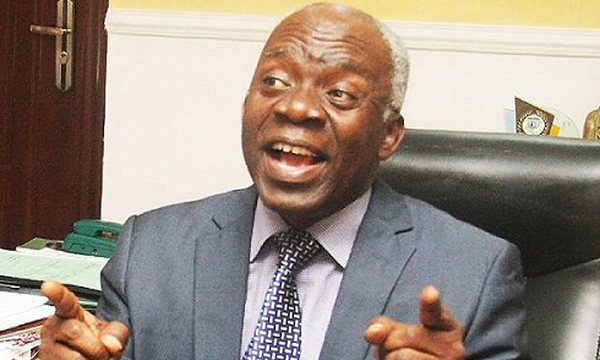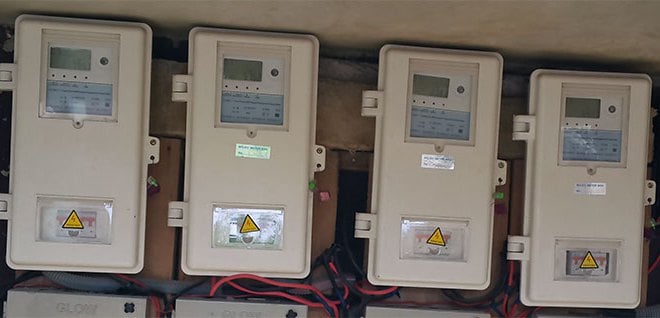On Monday, the Central Bank of Nigeria (CBN) announced that beneficiaries of diaspora remittances through the international monetary transfer operators (IMTO) shall now have such inflows in foreign currency (US dollar) through the designated bank of their choice.
This development as contained in a statement signed by O.S. Nnaji, director of trade & exchange of CBN, noted that recipients of such remittances may have the option of receiving such funds in the foreign currency cash or into their domiciliary account.
The apex explained that these “changes are necessary to deepen the foreign exchange market, provide more liquidity and create more transparency in the administration of Diaspora remittances into Nigeria”.
“In addition, these changes would help finance a future stream of investment opportunities for Nigerians in the Diaspora, while also guaranteeing that recipients would receive a market reflective exchange rate for the market,” the statement reads.
Advertisement
But what appeared to be a policy erupting out of the blues had earlier generated court actions from Femi Falana, human rights lawyer, against the CBN.
It started with a petition dated October 21, 2019 where Falana addressed the acting chairman of the Economic and Financial Crimes Commission (EFCC), Ibrahim Magu, demanding an investigation of banks, Western Union and MoneyGram for substituting Naira for Dollar remittances.
In the petition, Falana referred to a remark by Boss Mustapha, secretary to the government of the federation (SGF), at the 2019 National Diaspora Day celebration in July, 2019, where the SGF was quoted as saying the remittances received from Nigerians stood at $19.6 billion, $22 billion and $25 billion in 2016, 2017 and 2018 respectively.
Advertisement
“These monies are currently utilised as social security funds to families (school fees, feeding allowance, hospital bills and so on). Some of it is invested in housing and estate development, hospital projects, schools and commercial enterprises but are not properly documented and analysed for impact,” Mustapha was quoted as saying.
Falana argued that it is in contravention of the foreign exchange act and the money laundering act that the CBN granted banks, Western Union and MoneyGram authority to pay beneficiaries of remittances in Naira while retaining the Dollar component abroad.
“But in total contravention of the relevant laws, the Central Bank of Nigeria decided to authorise Nigerian banks, Western Union and MoneyGram to re-export the remittances abroad to the detriment of the national economy,” the petition reads.
As a follow up on his request for probe, Falana, through his chambers, wrote to the CBN on February 10, 2020, requesting for the official figures of diaspora remittances received by the federal government for years 2016, 2017 and 2018.
Advertisement
The request leveraging on the freedom of information act (FOIA) demanded a response from the apex bank within seven days.
In its response on February 26, CBN acknowledged the letter saying “we will revert to you as soon as possible”.
But the apex bank did not reply until June 29 when it said the CBN is “unable to accede to your request… as the requested information being sought is readily available on the Bank’s website”.
Falana then proceeded to the federal high court, Abuja, where his chamber instituted a court action against the CBN for its refusal to release the requested information on foreign remittances through the FOIA.
Advertisement
In a suit dated July 28, Falana requested an order of mandamus compelling the respondent (CBN) to provide the official figures as requested.
“The failure of the Respondent to furnish the Applicant with the details of her request is unlawful and in contravention of the provision of the Freedom of Information Act,” the suit reads.
Advertisement
“That the information requested by the Applicant was never published by the Respondent on its websites claimed in the letter dated 29th June, 2020.
“That a prerogative writ of mandamus can be issued or ordered by the court to secure or compel the Respondent to furnish the Applicant with the official figures of Diaspora remittances received by Nigeria for the years: 2016, 2017, and 2018 respectively under Section 20 of the Freedom of Information Act 2010.”
Advertisement
He said the information is needed to provide clarity on Nigeria’s foreign remittances as figures provided by some newspapers crediting Mustapha were contradictory.
With the new policy, the apex bank said beneficiaries shall have unfettered access and utilisation to such foreign currency proceeds, either in cash and or in their domiciliary accounts.
Advertisement
Add a comment






